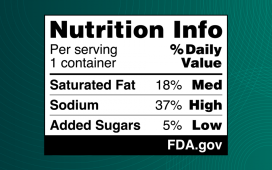Receipt of any opioid-related payment from industry in 2014 tied to increase in opioid claims in 2015
MONDAY, May 14, 2018 (HealthDay News) — Receipt of opioid-related payments from industry in 2014 was associated with increased opioid prescribing in 2015, according to a research letter published online May 14 in JAMA Internal Medicine.
Scott E. Hadland, M.D., M.P.H., from the Boston Medical Center, and colleagues examined the extent to which pharmaceutical industry marketing of opioid products to physicians during 2014 correlated with opioid prescribing in 2015. Data were obtained on all transfers of value from pharmaceutical companies to physicians from the Open Payments database; data on opioid prescribing were extracted from the Medicare Part D Opioid Prescriber Summary File in 2015.
The researchers found that 369,139 physicians prescribed opioids under Medicare Part D in 2015. In 2014, 7.0 percent of these physicians received a total of $9,071,976 in non-research opioid-related payments; only 1.7 percent of physicians received ≥$1,000. From 2014 to 2015, there was a decrease in total opioid claims for Medicare beneficiaries (mean difference per physician, −0.6). Physicians receiving opioid-related payments had more opioid claims (mean difference, 1.6), while those receiving no payments had fewer opioid-related claims (mean difference, −0.8). Compared with physicians receiving no opioid-related payments, receipt of any opioid-related payment from industry in 2014 correlated with 9.3 percent more opioid claims in 2015.
“Amidst national efforts to curb the overprescribing of opioids, our findings suggest that manufacturers should consider a voluntary decrease or complete cessation of marketing to physicians,” the authors write. “Federal and state governments should also consider legal limits on the number and amount of payments.”
Copyright © 2018 HealthDay. All rights reserved.








